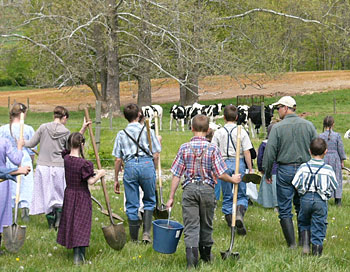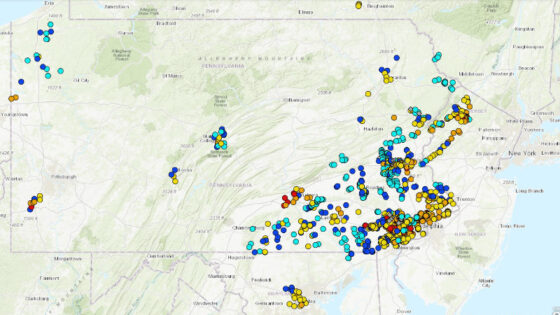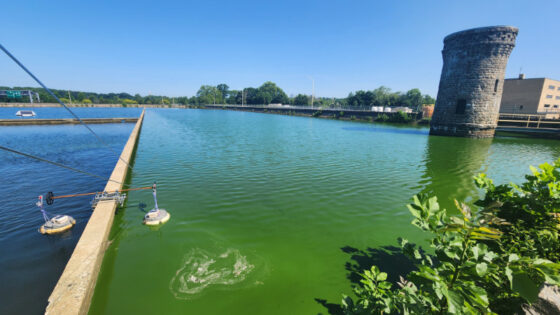MEDIA ALERT
FOR IMMEDIATE RELEASE: April 30, 2015
FOR MORE INFORMATION CONTACT:
Beverly M. Payton, Communications Director
The Berks County Conservation District gave Stroud Center Director Bernard W. Sweeney, Ph.D., its Conservation Individual of the Year Award and the Lancaster County Conservation District gave Stroud Center its Cooperating Agency Award.

AVONDALE, Pa.— Bernard W. Sweeney, Ph.D., director of Stroud Water Research Center, received the Berks County Conservation District’s Conservation Individual of the Year Award April 27, in Shartlesville, Pennsylvania.
“We are pleased to recognize Dr. Sweeney’s proactive work to apply the science of riparian forest ecology. This supports the district’s efforts to improve water quality in Berks County’s streams and rivers,” said District Executive Dan Greig.
Last year, Sweeney, and colleague Denis Newbold, Ph.D., conducted an extensive scientific literature review, published in the June issue of the Journal of American Water Resources Association, in which they concluded that streamside forest buffers, long considered a best management practice, should be 100 feet wide on both sides to adequately protect freshwater ecosystems from human activities.
“I am honored to receive this award, and pleased that the Berks County Conservation District is applying the research behind best management practices by supporting the installation of wide forest buffers in its programs,” said Sweeney.
Wide forest buffers on both sides of a stream provide many ecosystem benefits. These include: filtering out excess nitrogen, trapping soil sediments, preventing stream bank erosion and cooling the stream — through shade — to a healthier temperature for aquatic life. Trees also drop leaves and large woody debris which provide an important food source and healthier habitat for aquatic insects and fish. Streamside forests also contribute to stream channel widening and improved channel meandering, which helps prevent downstream flooding.
“Meadows and grass buffers do not provide many of those benefits and don’t perform any of them as effectively as do trees,” said Sweeney.

Current standards for a minimum forest buffer width vary from state to state and even from program to program, generally ranging from 35 feet to 100 feet.
Replanting forests in previously cleared land is a key component of Stroud Water Research Center’s watershed restoration efforts. That’s among the many reasons why the Lancaster County Conservation District honored Stroud Water Research Center with its Cooperating Agency Award on March 19.
Stroud Center, in partnership with local conservation districts, presented many workshops in Berks and Lancaster counties to help farmers and landowners learn how they can access state and federal incentives that offset the costs of making improvements and keeping the land in its natural state.
Stroud Center also hosted a daylong workshop about stream health for the Lancaster County Conservation District. Participants especially enjoyed a tour of Stroud Center’s LEED® Platinum certified environmental education complex and stream room labs.



